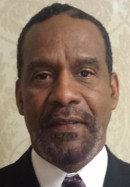Guest Commentary: Imam: Why MLK’s life and legacy mean so much to me
By Hatim Hamidullah
Over the next couple of weeks, Central Floridians will be feted to an array of events celebrating the life and legacy of the Rev. Martin Luther King Jr. I contend that MLK’s history is vitally important to all of us.
One of my early childhood memories involves sitting in front of our old black-and-white TV at our home in Waco, Texas, watching angry people shouting, breaking windows and lighting fires. The TV newscasters kept talking about “race riots.”
Not long after, I saw on the TV screen a huge funeral procession winding its way down the streets of a city while crowds watched. Adults around me were crying. In hushed tones they talked about President Kennedy having been assassinated — a new but ominous-sounding word for me.
More than four years later, on April 4, 1968, King also was assassinated. I arrived at school the next morning to find my teachers and many students crying. But tears were only part of what I encountered; a pervasive, paralyzing cloud seemed to have settled over everyone.
I’d watched King on TV. I’d been captivated by the rhythm and depth of his unique speaking style, the impact of the pictures he painted through his carefully chosen words, the hope and inspiration engendered by the substance of his messages.
I certainly understood why he was deeply loved and respected by so many, especially by — but not limited to — those who shared my skin color. Indeed, as TV channels broadcast images of blacks and whites, Protestants and Catholics, Christians and Jews marching arm in arm with King, standing beside him as he delivered those powerful speeches, facing police batons, dogs and firehoses, I was convinced that I was observing religion at its very best. I think I was captivated.
But young as I was, I knew there had to be more to the story. So, I was determined to learn why King’s head-on confrontations with bigotry were so necessary in the first place.
I was one of seven boys born into our hard-working, two-parent, committed-Christian, “Negro” family — as people of African descent were referred to back then. But even within our family, I tended to keep to myself. I was a loner and a bookworm. Books were my friends. I found comfort in them.
It was in history books that I found the evidence for what I’d observed in person and on TV from my earliest recollections. Through excellent teachers and reading, I learned much more about slavery, America’s subsequent institutionalized racism, King, the civil-rights movement and our nation’s still-unresolved social issues.
The deeper I delved, the more I realized that the tears shed after MLK’s assassination weren’t just about his death. They were also about the many forms of injustice and inequity that he’d so unflinchingly fought to correct.
The more I read during those formative years, the more I came to realize how crucial it is to know the facts of history — especially if we’re hoping to inspire impartiality in our future.
“The arc of the moral universe is long,” King said, “but it bends toward justice.” That statement, like many of his others, struck a responsive chord in me.
But the bending he described doesn’t just happen. It comes about only when people individually and collectively persist in standing up to injustice. It happens because people who understand the facts of history refuse to rest until liberty and justice for all has been achieved. It happens because individuals, faith groups and entire communities young and old refuse to let the memory and dreams of MLK and others like him slip into oblivion.
That’s what the activities of the next couple of weeks are all about.
Hatim Hamidullah is the Imam (clergy) at Masjid Al-Haqq-ISCF in downtown Orlando. He is also the director of Knowledge for Living Inc., and serves on the executive committee of the Interfaith Council of Central Florida.

